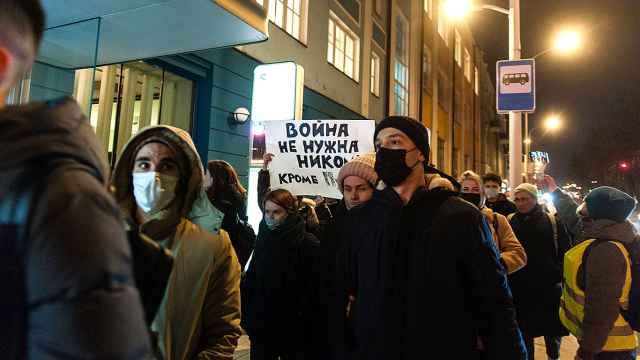It all started when "Leviathan" actor Alexei Serebryakov said in an interview with Yury Dud that Russia’s national identity was "power, arrogance and rudeness."
Not only did this irritate the authorities, it set off a storm of angry condemnation from dozens of famous and not-so-famous celebrities who were eager to find a reason to be radically offended on behalf of the country.
This phalanx of the faithful included State Duma deputies, patriotic colleagues and members of the public. Russian stage and film directors suggested blacklisting him and the singer responsible for "Musi-Pusi" — a song of undeniable artistic merit — has taken to musing on the spirituality and compassion of the Russian people.
Hordes of internet users now want to ban Serebryakov from Russian film and strip him of his citizenship. This all brings to mind a line from the Fazil Iskander story, "Man’s Parking." "There are times," he wrote, "when the people take on a collective stench to unify in spirit."
Maybe the actor’s words were a little clumsy. After all, "power, arrogance and rudeness" cannot be said to define the national identity. The description better fits the behavior of Russia’s bureaucrats — at home and abroad — in recent years.
But the punishment — a furious venting of mass indignation — did not really fit the crime. Rather, it recalls other scandals, like when Dozhd TV asked its viewers whether it would have been more humane to surrender Leningrad during the Nazi siege or when a Russian school student had the nerve to express compassion for a German soldier who died in a Soviet prisoner-of-war camp.
The style of the response is a reflection of the mentality of the speaker: fanatical or composed, dogmatic or dignified. Regardless of whether the authorities are orchestrating their actions, this choir of indignant actors, directors, singers, Duma deputies and artists resembles the defamation campaigns that Soviet authorities unleashed against Alexander Solzhenitsyn, Boris Pasternak and Andrei Sakharov.
Serebryakov is lucky that the standards for mob justice have slackened. So far, no one has threatened to execute him, drown him or tear out his tongue. But what caused such a nervous reaction?
It could hardly be the actor’s fame or the obvious discrepancy between his words and the conduct of some of the military heroes he has portrayed. Since the time of Pushkin — who, in a letter to Pyotr Vyazemsky on May 27, 1826, was annoyed with a foreigner who had shown contempt for Russia — there has been no shortage of Russians ready to vilify any compatriot who did not share their fervent adoration of the Motherland.
What’s more, Serebryakov has lived in Canada since 2012. Instead of voicing the proper nostalgia for his homeland and its beckoning birch forests, he has callously condemned its actions, says political analyst Alexei Makarkin.
According to Mikhail Vinogradov, another poltical analyst, many Russians today are eager to demonstrate publicly and vociferously — within the very loose confines set by the authorities, of course — against anyone that dares to disturb the public peace. These people are looking for any pretext to parade their indignation before the authorities.
The muted reaction from the Kremlin, however, indicates that the current episode will soon blow over, as did the earlier scandal with the empathetic school student, says Makarkin. And the names of those now branding Serebryakov a traitor will soon be forgotten.
Pavel Aptekar is a columnist for the Russian business daily Vedomosti, where this article was originally published. The views and opinions expressed in opinion pieces do not necessarily reflect the position of The Moscow Times.







